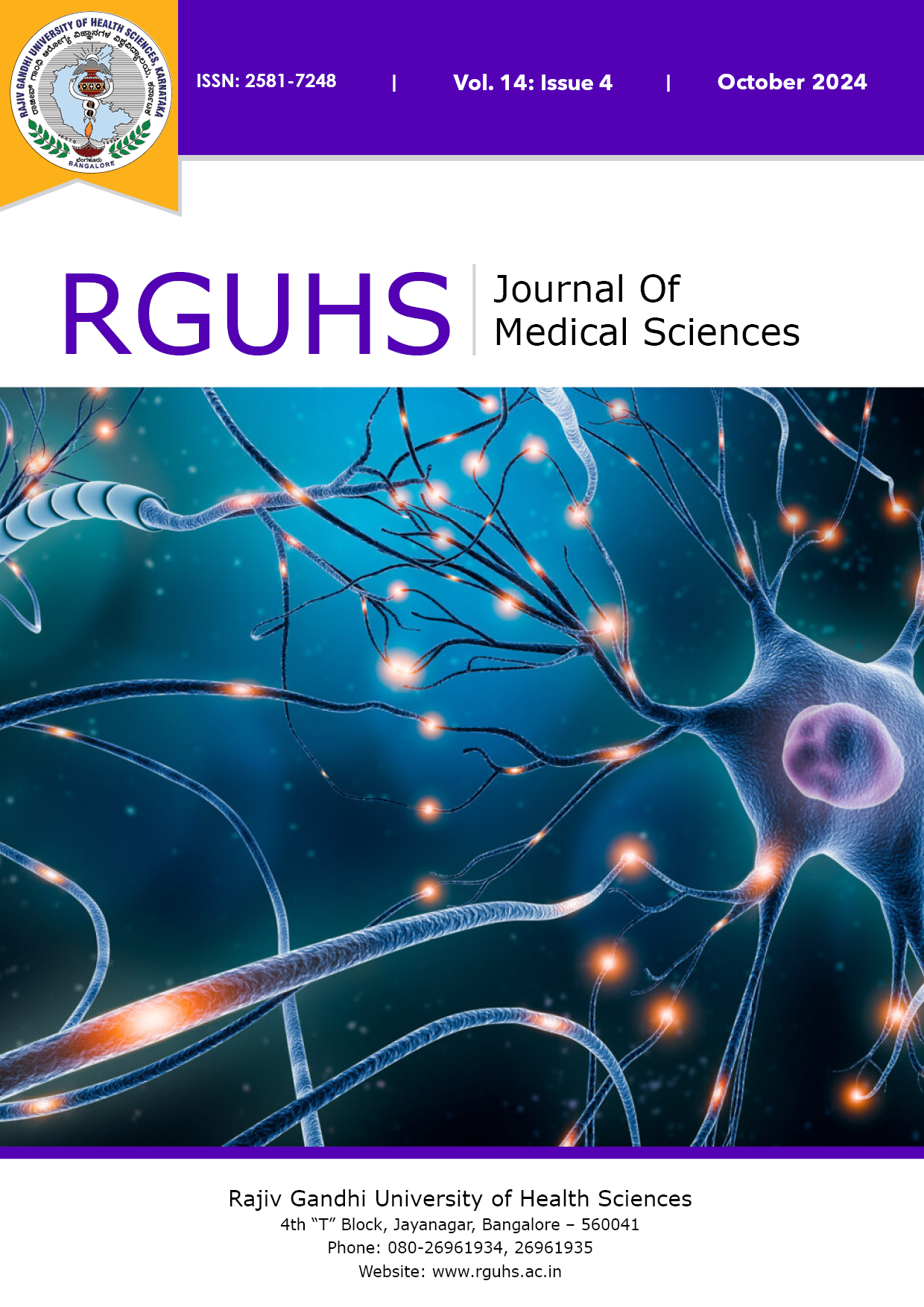
Abbreviation: RJMS Vol: 15 Issue: 1 eISSN: 2581-7248 pISSN 2231-1947
Dear Authors,
We invite you to watch this comprehensive video guide on the process of submitting your article online. This video will provide you with step-by-step instructions to ensure a smooth and successful submission.
Thank you for your attention and cooperation.
Kanishk Deep Sharma
Interneee, Dr Prabhakar Kore Hospital & Research Centre, Belagavi, Karnataka
Corresponding author:
Dr. Kanishk D. Sharma
Internee Dr Prabhakar Kore Hospital, Nehru Nagar, Belagavi 590 010 kanishksharma@gmail.com

Abstract
Introduction: Depression is one of the most common treatable illnesses affecting individuals after age of sixty years. In India, 39.04% of elderly are estimated to suffer from depression, whose prevalence is higher in slum areas and old age homes. This study was done to assess the prevalence of depression among elderly residing in urban households and to determine various factors responsible for it.
Materials & Methods:Urban households of Ashok Nagar and Ram Nagar areas of Belagavi city were selected using random number table. A total of 150 elderly were interviewed using pre-tested and predesigned questionnaire which included geriatric depression scale-30. Data was analysed using SPSS software 16th edition (trial version) & Chi-Square test.
Results:The prevalence of depression in elderly was 37.1%, among these 24.7% were mildly depressed and 9.3% severely depressed. Depression was more prevalent in those who were not physically active (44.9%) than those who were active (24.7%) (X2 =6.902, p= 0.032).Also, 40.6% of Illiterates were found to be depressed(X2 =9.391, p= 0.009).
Conclusion:Four out of ten individuals suffered from depression after sixty years of age. Depression was seen higher in illiterates and individuals leading sedentary lifestyle and was found to be statistically significant
Keywords
Downloads
-
1FullTextPDF
Article
None
Supporting File
References
None